- News
- Reviews
- Bikes
- Components
- Bar tape & grips
- Bottom brackets
- Brake & gear cables
- Brake & STI levers
- Brake pads & spares
- Brakes
- Cassettes & freewheels
- Chains
- Chainsets & chainrings
- Derailleurs - front
- Derailleurs - rear
- Forks
- Gear levers & shifters
- Groupsets
- Handlebars & extensions
- Headsets
- Hubs
- Inner tubes
- Pedals
- Quick releases & skewers
- Saddles
- Seatposts
- Stems
- Wheels
- Tyres
- Tubeless valves
- Accessories
- Accessories - misc
- Computer mounts
- Bags
- Bar ends
- Bike bags & cases
- Bottle cages
- Bottles
- Cameras
- Car racks
- Child seats
- Computers
- Glasses
- GPS units
- Helmets
- Lights - front
- Lights - rear
- Lights - sets
- Locks
- Mirrors
- Mudguards
- Racks
- Pumps & CO2 inflators
- Puncture kits
- Reflectives
- Smart watches
- Stands and racks
- Trailers
- Clothing
- Health, fitness and nutrition
- Tools and workshop
- Miscellaneous
- Buyers Guides
- Features
- Forum
- Recommends
- Podcast
feature
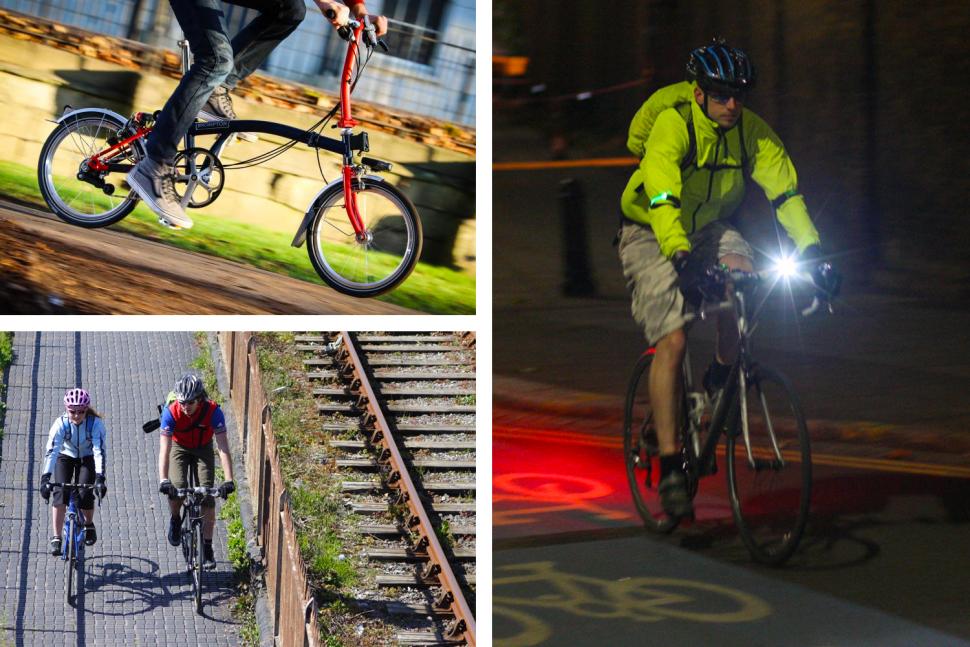 9 reasons to get to work by bike October 2020
9 reasons to get to work by bike October 20209 reasons to get to work by bike plus top tips to get you started
There's an easy way to get to work without boiling on the bus, train or Tube or sitting in traffic, and save money too: ride your bike. Here are nine reasons why cycle commuting is a good idea followed by our tips for getting it right.
Guide to the Best Commuting Bikes and Kit
1. It's cool
No, we don't mean it's hip and happening, baby, we mean that with some Tube lines hitting 40°C at the height of summer, and people sweltering and getting grumpy on over-crowded buses and trains, riding your bike is far and away the most comfortable way to get to work. Sure, you'll get sweaty, but take it easy and you'll end up much comfier than if you were crammed in a badly-ventilated metal box with a bunch of other people.
2. It’s cheap
You have to buy a bike if you don’t already own one, and you’ll probably want some bike-specific clothing like a waterproof jacket, but you don’t have to spend a fortune.
Once set up, the costs of running a bike are minimal. You’ll have to spend money on stuff for routine maintenance and you’ll need to replace tyres and other components from time to time, but the outlay is tiny compared to using a car: no fuel costs, no Vehicle Excise Duty, no congestion charge, no parking fees…
Read our urban and hybrid bike reviews here
3. It’s tax-free
If your employer offers the Cycle to Work Scheme then you can make major savings on bikes, cycle clothing and accessories up to a top limit that’s usually fixed at £1,000 (if your employer doesn’t offer a Cycle to Work Scheme, ask them to set one up).
Essentially, you pay nothing upfront, and then regular sums are taken tax efficiently from your salary by your employer. You can save hundreds of pounds and spread the payment interest-free, and you can use the bike for non-work-related rides too.
Find out about the Cycle to Work Scheme here
4. It’s healthy
We all know that being active is A Good Thing. The Even Better Thing about riding to work is that you can get fitter without really thinking about it. You don’t have to motivate yourself to do some exercise, you just go to work and the fitness happens, so you're getting something positive out of what might otherwise be dead time. You could save money on gym fees too.
Of course, if you want to turn a longer commute into a proper training session, that’s easily done.
5. You can save time
Cycling can be the fastest way of getting from A to B, particularly in a congested urban environment. You can filter through stationary traffic, use uncrowded cycle lanes, get off and walk past snarl ups… You don't even have to cycle the whole journey. With a folding bike you can ride some of the way to work, then jump off and quickly fold the bike down before getting on the train, for example.
Read our Brompton S6L folding bike review
6. Commute time is consistent
Okay, you might occasionally need to spend a few minutes replacing a punctured inner tube, but that’s nothing compared to the amount of time you can spend sitting in a queue at temporary traffic lights or waiting for a delayed train, and there’s no chance of strikes stopping you from getting to work.
If you cycle you pretty much know how long your commute is going to take so you don’t need to factor in wiggle room to account for any delays.
7. It’s much more fun
Sitting in traffic: not fun. Waiting on Platform 2 for the 08:22 to Bristol Temple Meads: not fun. Standing up on the packed Tube halfway round the Circle line: not fun. Riding a bike: fun.
Maybe you can take the towpath or the back lanes on your bike – you know, go somewhere that’s actually nice on the way to and from work.
8. It’s good for the planet
Cars really aren’t good for the environment – we can all agree on that – and anything that cuts vehicle emissions and congestion has to be good news.
9. It’s easier than you might think
Riding to work really isn’t the rigmarole that some people think. In fact, it's very straightforward. Once you have your bike set up it’s just a question of establishing a new habit. Commuting by bike will soon feel like the normal thing to do.
Here are our top tips to help you get to work the fun and fast way.
Choose your route
Unlike when you're driving, there's no advantage to using major roads when you. cycle On a bike your top speed is limited by how hard you’re able (or willing) to pedal; you can’t go any faster on bigger roads. That means that you can avoid the fastest, busiest roads in favour of quieter ones without your average speed suffering. It’s often the case that the quiet roads are more direct, too.
Get yourself a map and work out some options. Expect to have to experiment a few times with routes before you find the best one. Google Maps is a useful tool. Use the cycling option and it’ll automatically make a route that you can then easily drag around to suit your preferences.
%2002.jpg)
Cyclestreets.net is another great online tool. It will provide you three routes between your home and destination: fastest, quietest and a ‘balanced’ intermediate. It also has apps for iPhone, Android and even Windows Phone and Blackberry 10 so if you can mount your phone on your handlebar, you can easily follow the route it provides.
Cyclestreets will tend to route you along cycle paths if it can, but they’re worth keeping in mind even if you’re planning your own route. They won’t always be an option, but traffic-free routes are good if available. Look for other alternative transport corridors like canal towpaths, too. They’re not always lit and can have unpredictable surfaces, but at this time of year that shouldn’t be a problem.
Plenty of other apps out there will also help you devise your route.
Check out 26 of the best smartphone cycling apps for iPhone and Android
If you get hooked on bike-commuting, remember that you don’t have to use the same route every day, or even at both ends of the same day. One of the joys of cycle commuting is the freedom to take a longer, more scenic, or – if you’re training – deliberately harder route if the mood takes you. Most experienced cycle commuters have a selection of routes from which they pick and choose according to conditions and whim.
Get trained
If you're new to mixing it with traffic, you’ll benefit from some extra skills and knowledge to ride safely on the road. Several organisations offer adult cycle training, with qualified instructors to help you get to grips with busy roads, complex junctions and so on. If your commute takes you on roads (and most will) and you’re not hugely confident, then a day’s training will make a big difference.
Bikeability courses are designed to help you get comfortable, confident and safe in the saddle
Stay safe
You’ll certainly need lights if you're planning to commute by bike right through the year. Some riders use lights during daylight too; modern LED lights are so compact and efficient that there’s little downside to using them.
After dark, lots of reflective material (either on your clothing or stuck to your bike) is a good idea too. Get yourself as visible as possible and you’ve got a chance of getting the attention of slightly inattentive drivers.
Clothing
What you wear to ride depends on a number of factors. You can ride a short, easy commute in your normal work clothes. If you don’t have to raise a sweat then there’s little reason to change, and you might be surprised how far you can ride with little effort. If you’ve either got a significant distance to cover, significant hills to scale or you just like going fast, then wearing cycling kit for your commute makes sense.
%2001.jpg)
Check out our clothing reviews here.
That means you’ll have to change at the office so you’ll need some way of getting your civilian clothes to work. This is straightforward if your workwear is something other than a smart suit: just roll it up and put it in a rucksack or pannier.
If you need to be smart it’s trickier. There are panniers and rucksacks available that are specifically designed to carry a suit, so that’s an option. Remember that you don’t have to take all your clothes every day. A popular strategy is to leave the suit at work until it needs cleaning and bring in a fresh shirt, pants and socks each day. Or bring a week’s shirts on Monday and travel light until Friday evening when you bring it all home again to wash over the weekend.
Luggage
Inevitably you’ll have to carry some stuff with you to work. If you don’t need to take much, a rucksack or shoulder bag is fine. Some people swear by rucksacks because they’re fuss-free: step off the bike and your load comes with you.
%2004.jpg)
Others can’t stand carrying things on their backs and swear by panniers because weight on the bike is more comfortable. You can carry a lot more in panniers and you don’t get a sweaty back. If you plan to fit a rack, make sure that you choose a bike with the necessary mounts. You can get racks that work with any bike, but good ones are expensive.
The bike
Choosing the right bike is something of a challenge, particularly if you’ve not had much to do with bikes before.
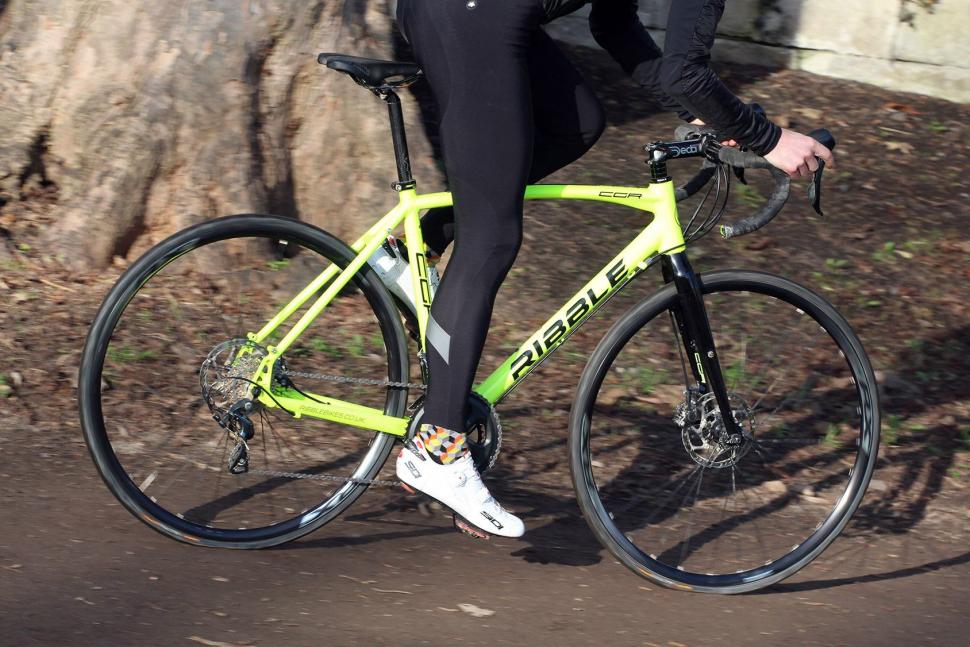
Read road.cc Commuting Bike of the Year 2017-18
This is where a good bike shop comes in. They’ll be able to narrow down your options based on the nature of your commute, how much you need to carry, whether you plan to ride in all weathers or just on nice days and of course your budget. The best bike for a commute across a busy urban area isn’t the same as the best bike for a longer trip along open roads out of town, and the best bike for riding to the station and taking with you on the train is different again.
Go to our urban and hybrid bike reviews
However, if you already have any sort of bike, you might just want to make sure there’s air in the tyres and the brakes and gears work and go for it.
Want more advice? See our Guide to the Best Commuting Bikes and Kit
Mudguards and racks
Some bikes come fitted with mudguards but most don’t. If you’re going to commute by bike in all conditions you might well want to fit mudguards to stop your tyres spraying you with water from the road.
Many bikes are built with eyelets for fixing mudguards. Again, there’s usually a solution if your bike doesn’t have them, but if you intend to use mudguards, eyelets make life that little bit easier.
Read our buyer's guide to mudguards
Lock it or lose it
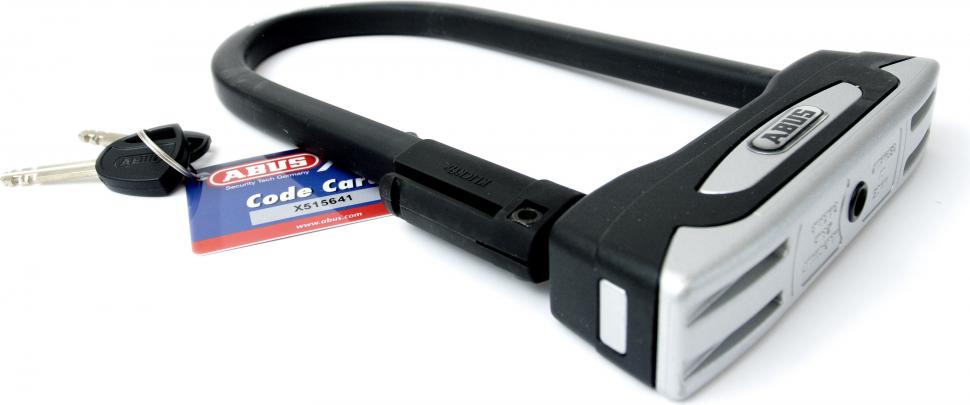
Find out now if there’s anywhere in your building or nearby that you can safely park a bike. If you’re going to have to leave it on the street, get yourself a high-strength lock and see our tips to stop bike theft.
Find out about 6 of the best bike locks and stop your bike getting stolen
Share your knowledge
Got advice for your fellow cycle commuters? What do you wish you'd known the first few times you set out to work by bike? Tell us in the comments, below.
John has been writing about bikes and cycling for over 30 years since discovering that people were mug enough to pay him for it rather than expecting him to do an honest day's work.
He was heavily involved in the mountain bike boom of the late 1980s as a racer, team manager and race promoter, and that led to writing for Mountain Biking UK magazine shortly after its inception. He got the gig by phoning up the editor and telling him the magazine was rubbish and he could do better. Rather than telling him to get lost, MBUK editor Tym Manley called John’s bluff and the rest is history.
Since then he has worked on MTB Pro magazine and was editor of Maximum Mountain Bike and Australian Mountain Bike magazines, before switching to the web in 2000 to work for CyclingNews.com. Along with road.cc founder Tony Farrelly, John was on the launch team for BikeRadar.com and subsequently became editor in chief of Future Publishing’s group of cycling magazines and websites, including Cycling Plus, MBUK, What Mountain Bike and Procycling.
John has also written for Cyclist magazine, edited the BikeMagic website and was founding editor of TotalWomensCycling.com before handing over to someone far more representative of the site's main audience.
He joined road.cc in 2013. He lives in Cambridge where the lack of hills is more than made up for by the headwinds.
Latest Comments
- AidanR 9 min 54 sec ago
Bloody hell... How are you doing now?
- ktache 18 min 17 sec ago
And I liked endura too. Got a nice long sleeve mostly merino long sleeve a little while back, in orange.
- matthewn5 46 min 20 sec ago
No, the Ebay lights have been around for several years, this Lezyne light just appeared.
- chrisonabike 1 hour 2 min ago
They shouldn't worry - the second part of the "tariff" refrain is "they can make it in US and they'll do very well".
- Mr Blackbird 1 hour 34 min ago
"At the going down of the sun, it will get in our eyes and cause us to crash into things."
- Rendel Harris 1 hour 42 min ago
Been living in the area thirty years now and Brixton Cycles (and local riders wearing their famed Rastafarian colours jersey) has been an iconic...
- chrisonabike 3 hours 47 min ago
Does the "super-loud yellow" also help alert (non-deaf / non-earbud-wearing) pedestrians? Or will it just mean dogs bark at me?
- Festus 4 hours 38 min ago
One thing that bothers me is the use of antidepressant med and driving, it never gets picked up by police. Most of these types of medicines state...
- chrisonabike 6 hours 38 min ago
Indeed - but again these are perhaps questions we should keep asking. Even if the immediate answer is "well we are where we are" or "how on earth...
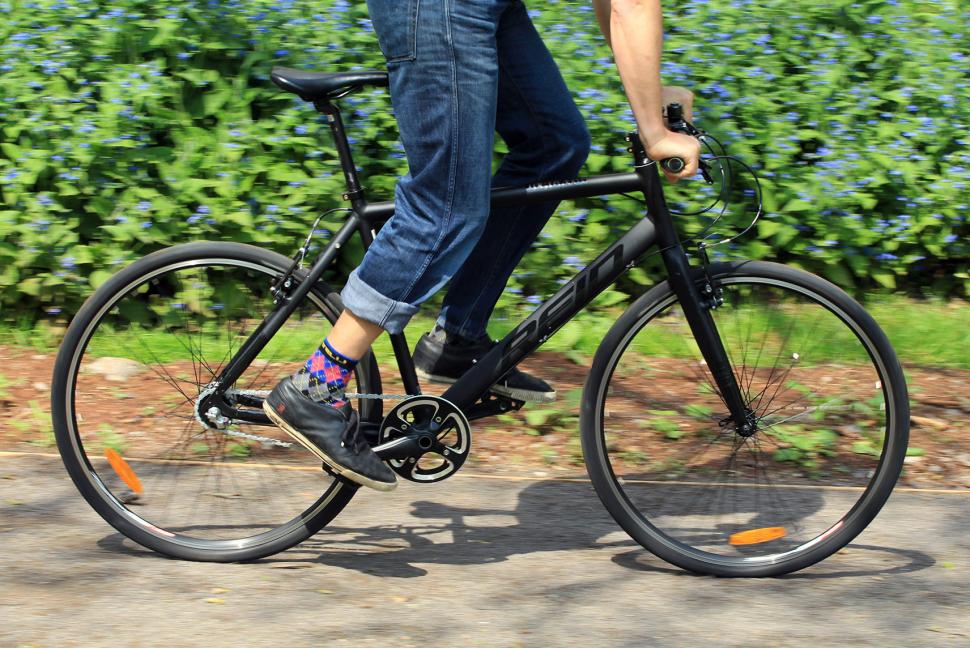
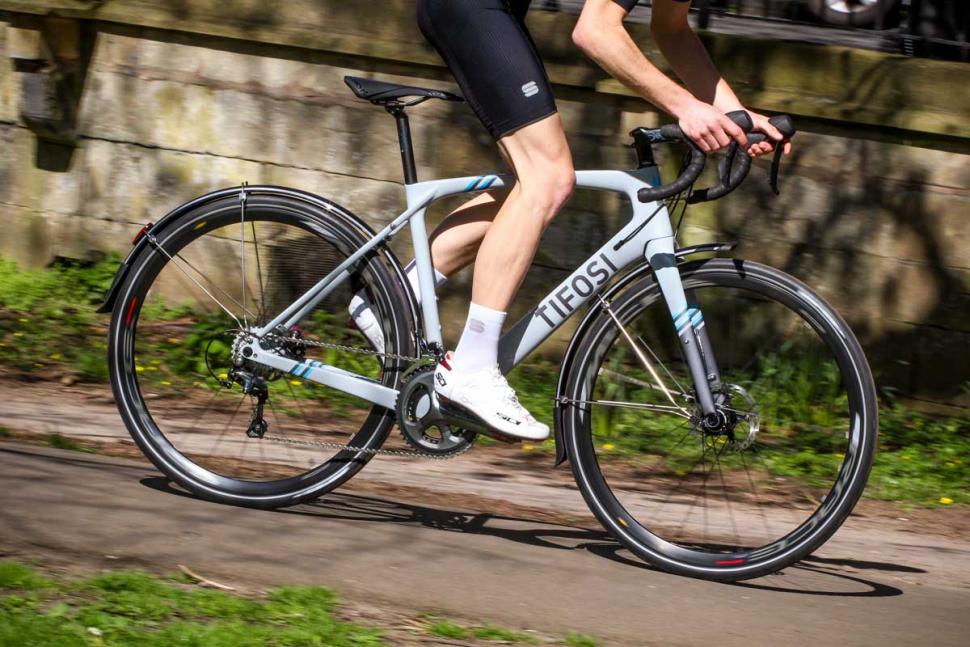
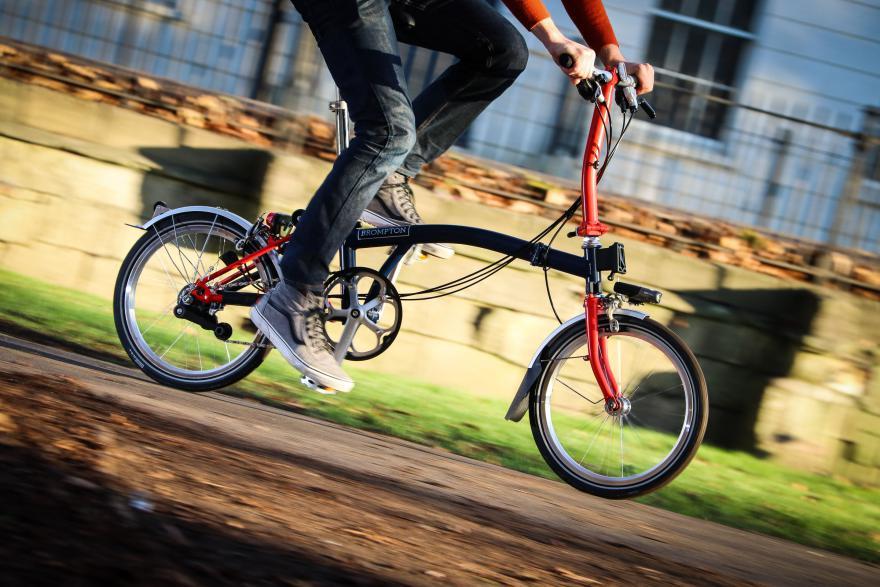
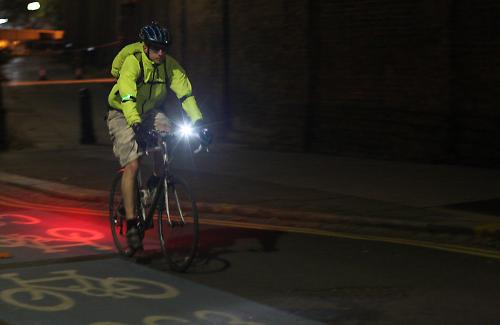
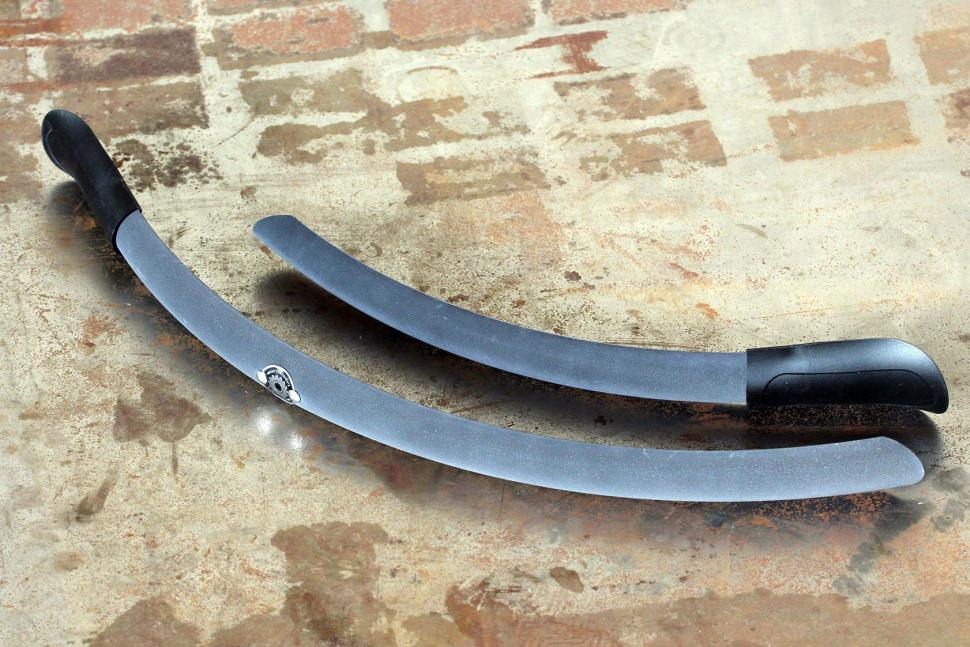
Add new comment
25 comments
Whilst working in a town in the south, we used to run regular beat the bus races from the station... my team on the bus and me on the bike for the 4-5 mile race on my crappy fold-up.
I usually beat the bus, with my work gear, laptop, food, make up and general crap in my ruck sack.
I would get changed but generally not shower because it wasn't necessary (at least I think it wasn't necessary... I didn't notice anyone shying away from me).
It's a shame that people don't realise how manageable commute by bike is for some routes. Then again, people don't realise how walkable their tube commute is so I don't hold out much hope.
The tube thing is interesting. I'm a very occasional visitor to that there London, but it always amazes me that people will do two stops, change line, then three stops (for purposes of my argument) rather than just do a ten or even fifteen minute walk...
I think, much like cycling, it's more of a confidence thing about getting lost*. Whilst I cycle my london commute to the city now, I used to work Canary Wharf. I spent a good year doing a HORRIBLE set of changes between Paddington and Baker Street before someone said to me "why don't you walk to Lancaster Gate?". Why indeed. The TFL map would be much improved if you could put in your average walking pace, then it would be more accurate about the best route. There are other apps available but I don't think your average user will seek them out... they find their route and they tolerate it.
*I think one of the little discussed barriers to cycling the commute is:
A) the first time being confident about the route
B) confidence if you get kicked off the route you know (it's a pain in the arse when they close the mall for the benefit sponger parade)
Edit: top tip for Canary Wharf. Always get the DLR, and it's worth waiting a couple of trains to get the front seats so you can pretend you you are driving the train. No, I will never grow up.
There are good reasons why people prefer cars to commute; they can wear their work clothes without getting sweaty or wet; they can carry various luggage with them; they can take passengers with them if need arise; they can easily travel at the same speed as other motorised vehicles using the roads, which makes for a far safer journey; the commute is usually far quicker.
Car commuting downsides being parking, fuel costs, cost to your conscience of doing a regular journey you could do by other means (if applicable), having to go to the gym (by car?) to work out or get fat/ diabetes/ heart disease, etc., being a source of pollution and endangerment to everyone else - I mean, what's not to like?
On the vast majority of days, I seem to be able to manage that on a bike.
Yup - that too.
OK - that one i would find a stretch.
Instead of having to pass all the queueing traffic, as I often do on a bike.
Not judging by the regular smashes I cycle past.
Not round here it's not. (And, by all accounts, in the larger cities, even less so.)
I was going to rebut grOg's post but you've done it way better than I would have managed.
My experience now is that the morning ride (7.5 km at minimal sweat speed) is still faster than the bus once the short walks to and from bus stops are taken into account. The evening ride is mostly downhill and is about a third of the time the bus takes. Kit is in a £10 bar bag from planet X and I ride my usual bike depending on the weather.
People can hold their nose now, but this works for me:
When I get to work I have a quick wipe down with a paper towel and reapply my deodorant. I wear a fresh undershirt each day, and have found that shirts, if worn in rotation, can go quite a while between washes without starting to smell at all. So I shower pre-ride, at home.
Going home I can ride a lot harder, and as the evenings get lighter, I really ought to get the distance up a bit.
So it's all worked pretty easily and I would encourage anyone to try it. Perhaps tell your manager in case you puncture on day one, and try the route in advance.
I think that would be better written "there are reasons why some people prefer cars for some commutes". That's certainly what most people think. Certainly the UK places very little importance on daily mobility other than "transport" by motor vehicle, train or bus. In some places it may be more difficult than in others and in general it's easier for those living and working in towns / cities. Like everything once you start using a bike you quickly adapt. You overcome some "problems" and find that others are just not true for you - or at all. You discover there are benefits to using a bike to commute - whether that's the whole or part of the journey, alway or sometimes.
Could we change things to make this easier? Yes - change is not easy but it's possible. After all, successive UK governments got everyone motoring. That might have happened anyway eventually but it was hugely promoted and subsidised.
For those who would object to the above ideas on "principle" might I suggest this bingo card? For those who would cannot see how it could work differently here are some inspirational videos. For those who say "but that sort of thing can't work here" I would say "but it does" ([1], [2], [3]). Infrastructure in the UK? Yes - [1], [2] etc.!
I know the article is about commuting but another thing we overlook when considering transport in the UK is the fact that lots of other important "practical journeys" are made which aren't a commute! For shopping, to access education, health care, to connect with other people ... and it's not just "workers' journeys" we should consider, lots of others have transport needs [1], [2].
You know, you should probably update the photos on this article.
The Chocolate Path has been closed for years now, and the derelict-looking building on Bristol Centre is the Radisson Blu hotel (the one that a pane of glass fell off during one of the recent storms...).
I'm not sure those are the relevant aspects of the photos in the context, though - they're still doing a perfectly adequate job of illustrating 'people commuting by bike'.
I know, but it irritates me
4). It's healthy. You've forgotten MENTAL HEALTH !
I get a huge kick out of walking/clicking past my colleagues in the morning, them on their last desperate fag break before work (the next one is 90 minutes away ) me in all my cycling kit, a light dusting of sweat on my brow.
) me in all my cycling kit, a light dusting of sweat on my brow.
You can use the time to mull over work problems, or plan your evening, or work out where to go next on your bike.
I live near the South Downs so have a choice of road bike along the lanes, or MTB over the top. Earlier this week I stopped for 5 minutes to watch a couple of red kites quartering a field. Would you do that in a car? Sunrise is glorious.
If there's been a sharp frost you don't have to spend time clearing the windows of your car.
...sometimes it can take an hour or two to calm down after a close pass though...
Mental health didn't exist when this was originally published in 2015.
True that. And before the NHS we had to sew up our own cuts and pop our bones back in joint. And did we complain about it?
10. You can avoid other humans and their virus-ridden breath.
Actually my commuting stopped dead in mid-March for obvious reasons and I've hardly used my commuting bike since then other than going for a litre of milk when we've run out.
I appreciate that other people may not be able to avoid their workplace in the same way.
10. You will be despised by 99% of the population, and subject to daily attempts to kill you. The state will not prosecute those who try to kill you, but will prosecute you if you try to defend yourself.
>4. You can save time.
You can save time.. but any time you do save will be more than spent campaigning/battling for safe cycling infrastructure on the internets - a few close passes on the commute ensures you are a passionate convert to the cause
Preaching largely to the converted, but I'm at a loss as to why people would rather suffer two daily journeys on, say, the Northern line than swing a leg over a bike - particularly when it's nice and sunny outside and therefore 40 degrees on the Tube. But then, most people in my office think you have to be Bradley Wiggins to ride twenty miles a day. Hell, I was approached by an able-bodied person in their late twenties a few weeks ago who wanted me to sponsor them to walk, yes WALK, 5km.
Something to add to "4. You can save time" - you don't need to make time to go to the gym, or go for a run (or whatever your current exercise regime is).
Recently changed jobs and working from home now. Really missing the daily commute, particularly in this weather. On the plus side, quieter roads around here, lots of variety, and I can flex my ride length according to how busy I am. Only current downside is Hants CC love using surface dressing this time of year, all my preferred routes are coated in the stuff.
Cycle commuting does all the above and more.
First off, a lot of people will suggest insuperable barriers that preclude riding to work. Proving them wrong will be satisfying and you might start to wonder which other shibboleths aren't wholly true.
Next up, you're going to have to plan for the weather. Rain gear, sun cream, etc, you'll be looking at the weather forecast with genuine interest as you'll be a participant rather than an observer from behind a windscreen. When someone complains about the lack of sunshine or how their garden is suffering in the heat, you'll be recalling exactly what the weather was like because you were in it!
Finally, you'll be carrying kit to work so why not slip in a packed lunch? Healthier eating and another saving on your wallet. At this rate you can afford that carbon fibre number (or be boring and knock a few years off your mortgage).
I commute from the suburbs of Reading to Camberwell, on a Brompton it's quicker than public transport if I only use the Reading to Paddington train.
Very few people need to drive. Most could and should commute by bike.
I should but stand on my feet all day, no lunch break without some issue to sort out and then get home only to work till midnight and get up at 0630 to dash to work.
I’m quitting soon to have more work life balance but it does pay for house, bikes, holidays and cars.
Plus I’m always late for work, wear a suit and no clean showers at work.
Carrying flies on the bike in rain and cold weather.
All of the above are excuses to drive lol.
NB iy *can be* tax free. Depends on the employer.
But if it (Cyclescheme I presume?) isn't tax free, then there's little point in using it.
Cyclescheme is tax free, sort of, but not all employers are registered with it (or will agree to be).